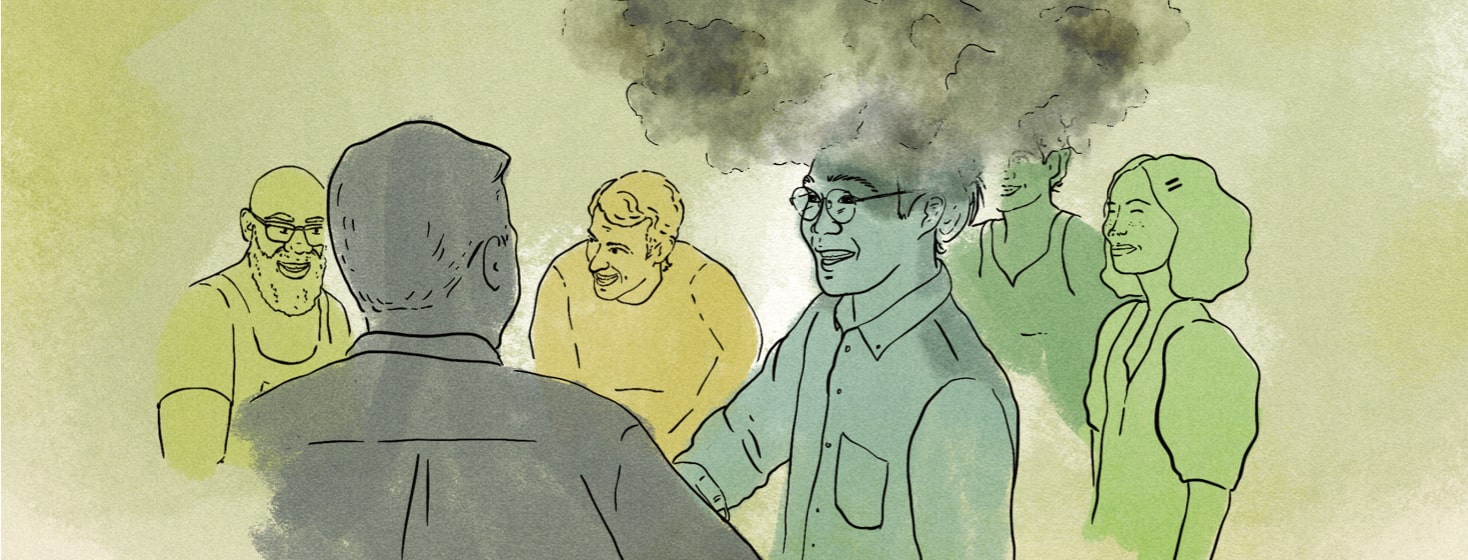A Secret Shame: Sharing the News
I received the news that my mother had cancer when living abroad and studying for a master's degree. Hearing the words, "I have cancer," felt like a punch in the stomach. It shook up my world. It changed everything. It changed me.
But during those first few weeks or months, I didn't want to tell anyone around me about my mother's diagnosis. It wasn't my sickness, so why should I share it? It felt as if my mother's cancer would only be real if I started to share this information. Which, looking back, is a silly way of thinking.
During that time, keeping everything to myself was how I gained a sense of control over an uncontrollable situation. However, it is definitely an unhealthy way of dealing with a loved one's diagnosis.
A big move
I was new in a country, building my social circle, and trying to enjoy the life I was creating. But the dark cloud of my mother's diagnosis hung low overhead. I wanted to avoid uncomfortable situations – not for me, but for those around me.
I had only been living in the Netherlands for a few months when my mother was diagnosed. The combination of living somewhere far away and the feeling of not really being there were difficult to control. The one thing I could control was what those around me knew.
I was removed from the situation. I wasn't technically there with my mom and family. I was thousands of miles away. I knew my mother had cancer, but I didn't want to believe it. Keeping her diagnosis to myself was a way of avoiding the truth. But more than that, I felt like I was protecting those around me too.
Searching for my circle
If you've ever moved to a new city or country, it can be difficult to create a social circle. It takes time. In my first few months, I met a lot of people.
I went to bars, joined clubs, and started new sports. I was trying anything to create that feeling of belonging that (nearly) all humans crave. After a few months, I had a good group of people around me. Yet I still kept my mother's cancer diagnosis a secret. But why?
I wanted to avoid "those looks." Those heads tilt to the side, with an uncomfortable yet supportive look in their eyes as they try to offer support which they know will not help at all. I wanted to avoid the pep talks, the "it'll be ok," and the "I'm here if you need to talk" from people I hardly knew.
I didn't want to be a party pooper. And this was, as I look back on those dark days, completely irrational behavior. But it was the only form of control I had over a situation happening so far away from me.
Opening up
Certainly, there are things I would have done differently if I had a time machine and could go back to those first few months of my mother's cancer journey.
I would have allowed myself to open up more. More importantly, I wouldn't allow myself to feel shame for being a Debbie Downer. Because looking back, I realize that those around me would have offered support, friendship, and anything else I needed.
Once I finally opened up and shared the news, I became closer to new acquaintances, and friendship bonds were strengthened.
Talking about a family member's bladder cancer diagnosis
It's crazy to look back and evaluate how I tried to hold on to a form of control that, ultimately, was uncontrollable.
Being a caregiver, friend, or family member of someone going through their cancer journey will leave a lasting mark. It certainly has with me, but I now know more about myself, more about human nature, and more about how I would do things differently if I could.

Join the conversation